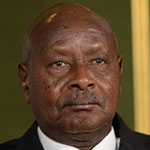
Radar | Sep 10,2021
Oct 24 , 2020
By Ristu Fekadu
To compromise between the lines is a day-to-day practice. However, "oneness," that unity of thought that comes rarely, is a character trait built through lots of effort and time. What we say and do implies how we are committed to it.
Critical to such a state of being, in our professional and personal lives, in politics, business or in social settings, is integrity. Being honest, trustworthy and reliable are unmatched character traits that not only improve our likelihood of success but make teamwork and healthy competition possible. It is an advantage that has long been frowned upon by the business elite that grew out of the concept of selfish endeavour as a "winning" tactic.
At some point, people may not like the decision we make, but it is critical we are backed by their trust, especially while it is within our circle of influence. It is like a safety deposit in others’ hearts and minds. It is how we buy the benefit of the doubt – the knowledge and belief that our actions, in the end, do stem from an honest place. This is an indispensable advantage to have in building teams.
Unfortunately, the politics and business realms seem less interested in such things. To have ulterior motives have become acceptable and the concept of good faith has come to inspire laughter.
Is this the right way to go? Is there a difference between erring without meaning to and approaching an assignment with questionable intent? Is it possible to deal constructively with people in the latter bucket or create a cohesive team with them as a member?
In business, delivering what has been promised is vital. But character is a traceable set of behaviours. At the end, when it comes to people whose integrity is questionable, success in one assignment is rarely a guarantee that the same will occur moving forward. In the same token, in dealing with people that may have failed at one task, it builds faith in their character that we feel comfortable enough assigning them another task even if they have failed the first one. Their integrity makes them a reliable partner to push through with another project. In business, where consistency is vital, such confidence in team members integrity is highly critical.
Further complicating the matter is that integrity is not a trait that pops up at any time in a person’s lifetime. It is discipline shaped from an early age. This is why our education systems may be bringing up students that turn out to be unreliable team members. They predicate learning upon things such as grades - not something to be chased for its own but critical for the attainment of a passing grade.
Integrity is thus commoditised, worth only demonstrating in words. To have a firm adherence to a moral code, unharnessed persistently, becomes hard. Politics and business become less about the ideologies and improved customer service that translates in profits, respectively, and more about who could step on who to get ahead. This is unhealthy, not just for individuals but politics and business as well.
I am not quite sure how many of us could stand out if we are evaluated with this respect by our co-workers, supervisors or subordinates. Most of us belong to a certain culture, and our conformity often signifies whether or not we manage to stay in the institutions. Societal, political and organisational cultures have intoxicating effects that make having integrity an all but fraught venture.
The business and political environments require serious considerations here. After all, we reap what we sow. If the value of integrity is respected in all but name, it is naïve to expect it from even a few individuals.
The importance of healthy competition and cooperation supportive to the greater good needs to be emphasised. Integrity has a cumulative effect while also needing the establishing of a culture to ensure that it remains relevant. While easy to ignore, a lack of integrity exacts a heavy cost in how we cooperate as a society.
PUBLISHED ON
Oct 24,2020 [ VOL
21 , NO
1069]


Radar | Sep 10,2021

Verbatim | Oct 16,2021

Fortune News | Feb 13,2021

Agenda | Jul 13,2020

Viewpoints | Aug 03,2019

Agenda | Sep 07,2019

Viewpoints | Jun 12,2021

Radar | Mar 30,2019

Viewpoints | Aug 16,2020

Editorial | Feb 13,2021

My Opinion | 132041 Views | Aug 14,2021

My Opinion | 128437 Views | Aug 21,2021

My Opinion | 126364 Views | Sep 10,2021

My Opinion | 123987 Views | Aug 07,2021





Dec 22 , 2024 . By TIZITA SHEWAFERAW
Charged with transforming colossal state-owned enterprises into modern and competitiv...

Aug 18 , 2024 . By AKSAH ITALO
Although predictable Yonas Zerihun's job in the ride-hailing service is not immune to...

Jul 28 , 2024 . By TIZITA SHEWAFERAW
Unhabitual, perhaps too many, Samuel Gebreyohannes, 38, used to occasionally enjoy a couple of beers at breakfast. However, he recently swit...

Jul 13 , 2024 . By AKSAH ITALO
Investors who rely on tractors, trucks, and field vehicles for commuting, transporting commodities, and f...

Jul 12 , 2025
Political leaders and their policy advisors often promise great leaps forward, yet th...

Jul 5 , 2025
Six years ago, Ethiopia was the darling of international liberal commentators. A year...

Jun 28 , 2025
Meseret Damtie, the assertive auditor general, has never been shy about naming names...

Jun 21 , 2025
A well-worn adage says, “Budget is not destiny, but it is direction.” Examining t...

Jul 13 , 2025 . By YITBAREK GETACHEW
The Addis Abeba City Revenue Bureau has introduced a new directive set to reshape how...

Jul 13 , 2025 . By BEZAWIT HULUAGER
Addis Abeba has approved a record 350 billion Br budget for the 2025/26 fiscal year,...

Jul 13 , 2025 . By RUTH BERHANU
The Addis Abeba Revenue Bureau has scrapped a value-added tax (VAT) on unprocessed ve...

Jul 13 , 2025 . By NAHOM AYELE
Federal lawmakers have finally brought closure to a protracted and contentious tax de...